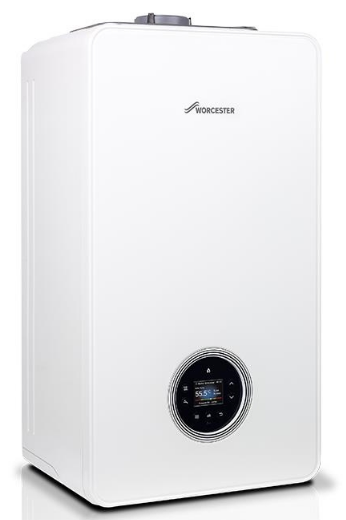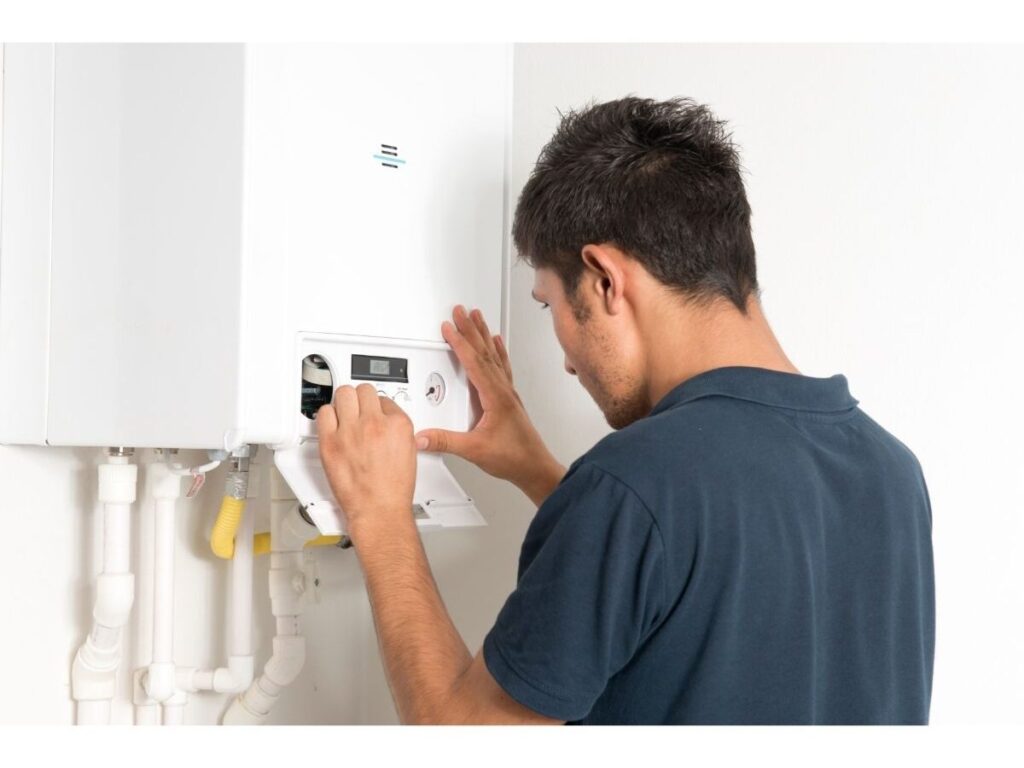One common problem reported by users is that their Worcester boiler hot water takes too long to heat up. When it comes to reliable heating systems, Worcester boilers have earned a reputation for their efficiency and performance.
However, as with any appliance, they may encounter issues over time. If you’re experiencing this inconvenience, don’t worry! In this article, we will delve into the potential causes behind this issue and provide you with practical solutions to resolve it.
Worcester Boiler Hot Water Takes Too Long: Exploring the Possible Reasons
Sediment buildup in the boiler hot water components, thermostat calibration, and undersized boiler capacity for household demand are three key factors that can cause Worcester boilers to heat water slowly. Flushing to clear sediment, thermostat recalibration for accurate temperature regulation, and upgrading to a properly sized boiler can help address these issues for faster hot water heating.

Below, we discuss various factors that might contribute to the delayed heating of hot water in Worcester boilers.
1. Sediment Buildup in the Boiler
Over time, mineral deposits and sediment can accumulate in the tank and pipes of the boiler. This buildup acts as insulation, making it harder for the water to heat efficiently. Flushing the tank and cleaning the pipes can help restore normal heating times.
2. Thermostat Calibration
The thermostat controls the temperature of the hot water. If it is miscalibrated or defective, the water may not reach the desired heating level as quickly. Having a technician check and recalibrate the thermostat can resolve this.
3. Inadequate Boiler Size
Insufficient boiler capacity for the hot water requirements in your home can lead to slow heat-up times. Upgrading to a larger boiler may be needed to provide enough heating power.
4. Issues with the Heating Element
Faulty or worn out heating elements are a common cause of slow hot water recovery. Replacing old elements restores rapid heating.
5. Problems with the Diverter Valve
The diverter valve directs water flow either to the taps or the heating system. Malfunctions cause water to take longer to reach the taps. Repairing or replacing the diverter valve is needed.
6. Low Water Pressure
Adequate water pressure ensures good flow through the boiler. Low pressure due to pipe leaks or blockages restricts flow and delays hot water delivery. Identifying and fixing leaks and obstructions can help.
7. Thermostat Location
If the thermostat is located far from the tank, it may not accurately detect water temperature, delaying heating. Relocating it closer to the tank can improve performance.
8. Issues with Water Inlet
Scale buildup and obstructions in the water inlet valve and pipes can reduce water flow into the boiler, slowing heat up. Descaling and cleaning the inlet can restore proper flow.
9. System Overload
High hot water usage across multiple taps can exceed the boiler heating capacity, resulting in longer heat-up times. Staggering use may help.
10. Boiler Age and Maintenance
Old boilers lose efficiency over time. Lack of maintenance also causes deterioration. Replacing very old boilers or proper servicing can restore rapid heating.

Solutions for Faster Hot Water Heating
Now that we’ve explored the potential causes, let’s look at some effective solutions to address the issue of slow hot water heating in Worcester boilers.
1. Regular Boiler Servicing
Schedule annual maintenance checks by a qualified technician. They will clean and inspect all components, perform tune-ups, and address any issues to keep the boiler operating efficiently.
2. Thermostat Calibration
If hot water takes too long, have a technician check and recalibrate the thermostat to ensure it maintains the optimal water temperature.
3. Check Water Pressure
Inspect that the home water pressure is between 30-50 psi. Low pressure will restrict water flow through the boiler.
4. Diverter Valve Inspection
Have a technician inspect the diverter valve which directs water flow. Repair or replace it if faulty.
5. Appropriate Boiler Size
If hot water needs have increased substantially, consider upgrading to a higher capacity boiler suited to the household demand.
6. Relocate the Thermostat
Position the thermostat close to the water heater for accurate temperature readings. Remote locations can cause delayed heating.
7. Descale Heat Exchanger
Remove calcium and mineral deposits from the heat exchanger annually to maximize heating efficiency.
8. Upgrade Water Inlet
If the boiler’s water inlet is old, replace it with an approved, non-restrictive inlet kit to improve flow.
9. Stagger Use
Avoid excessive hot water demand by not running multiple taps together. Stagger use to give the boiler time to reheat efficiently.
Causes and Solutions Table
| Cause | Solution |
|---|---|
| Thermostat miscalibration | Have technician recalibrate thermostat |
| Undersized boiler | Upgrade to higher capacity boiler |
| Faulty heating element | Replace heating element |
| Defective diverter valve | Repair or replace diverter valve |
| Low water pressure | Identify and fix leaks/obstructions |
| Inaccurate thermostat location | Relocate thermostat closer to tank |
| Clogged water inlet | Clean/descale water inlet |
| Excessive demand | Stagger hot water usage |
| Lack of maintenance | Schedule annual servicing |
Conclusion
Facing issues with your Worcester boiler where the hot water takes too long to reach the desired temperature can be frustrating, but it’s not uncommon. By understanding the possible causes and implementing the appropriate solutions, you can restore your boiler’s efficiency and enjoy consistent hot water supply.
Remember, regular maintenance and professional inspections are key to keeping your Worcester boiler in optimal working condition. If you encounter persistent problems or are unsure about any aspect of your boiler’s performance, don’t hesitate to seek the assistance of a qualified heating engineer.
FAQs
Q: How can I determine if sediment buildup is affecting my boiler’s hot water heating?
A: One common indicator is when you notice a decrease in the volume of hot water or the water not getting as hot as it used to. You can also consult a professional heating engineer for a thorough inspection.
Q: Can a faulty heating element be repaired, or do I need a replacement?
A: In some cases, a heating element can be repaired, but if the damage is extensive, it’s best to replace it for optimal performance.
Q: Should I consider upgrading my Worcester boiler to a newer model?
A: If your boiler is considerably old and frequently experiencing issues, upgrading to a newer model can offer improved efficiency and performance.
Q: Can low water pressure be fixed without professional help?
A: While you can check for visible issues, it’s best to consult a heating engineer to identify the root cause and carry out the necessary repairs.
Q: How frequently should I service my Worcester boiler?
A: Ideally, you should schedule annual servicing to keep your boiler in top shape and catch any potential problems early on.
Q: What are some signs that my diverter valve might be malfunctioning?
A: If you experience inconsistent hot water supply or notice strange noises coming from your boiler, the diverter valve could be at fault.

